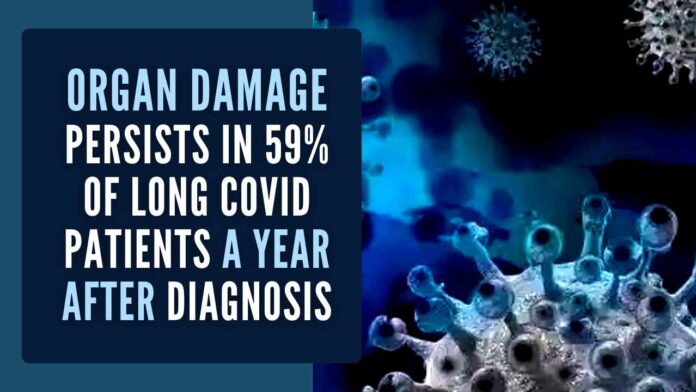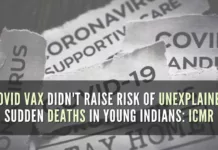
A study confirms that 29% of patients with long Covid had multi-organ impairment, with persistent symptoms and reduced function at 6-12 months
According to researchers, led by one of an Indian-origin, organ damage persisted in 59 percent of long Covid patients a year after initial symptoms, even in those not severely affected when first diagnosed with the virus.
The team included 536 long Covid patients in the study of which 331 (62 percent) were identified with organ impairment six months after their initial diagnosis.
The findings, published in the Journal of the Royal Society of Medicine, confirmed that 29 percent of patients with long Covid had a multi-organ impairment, with persistent symptoms and reduced function at six and 12 months. About 59 percent of long Covid patients had single organ impairment 12 months after initial diagnosis.
“Symptoms were common at six and 12 months and associated with female gender, younger age, and single organ impairment,” said senior author Professor Amitava Banerjee, Institute of Health Informatics at University College London.
The study reported a reduction in symptoms between six and 12 months — extreme breathlessness (in 38 percent to 30 percent of patients), cognitive dysfunction (48 percent to 38 percent), and poor health-related quality of life (57 percent to 45 percent).
“Several studies confirm the persistence of symptoms in individuals with long Covid up to one year. We now add that three in five people with long Covid have impairment in at least one organ, and one in four have impairment in two or more organs, in some cases without symptoms,” Banerjee said.
The underlying mechanisms of long Covid remain elusive, said the researchers, who did not find evidence by symptoms, blood investigations, or MRI to clearly define long Covid subtypes. They noted that future research must consider associations between symptoms, multi-organ impairment, and function in larger cohorts.
“Organ impairment in long Covid has implications for symptoms, quality of life and longer-term health, signalling the need for prevention and integrated care for long Covid patients,” Banerjee said.
[With Inputs from IANS]
PGurus is now on Telegram. Click here to join our channel and stay updated with all the latest news and views
For all the latest updates, download PGurus App.
- Karnataka HM apologizes to Neha’s parents while the killer Fayaz’s mother expresses her desire to ‘punish her son’ - April 20, 2024
- US: Indian student’s death possibly linked to Blue Whale suicide game - April 20, 2024
- BSF seizes China-made drone near India-Pakistan border in Amritsar - April 20, 2024











It did not effect Joe Biden nor Trump neither Xi Jinping nor Zelensky